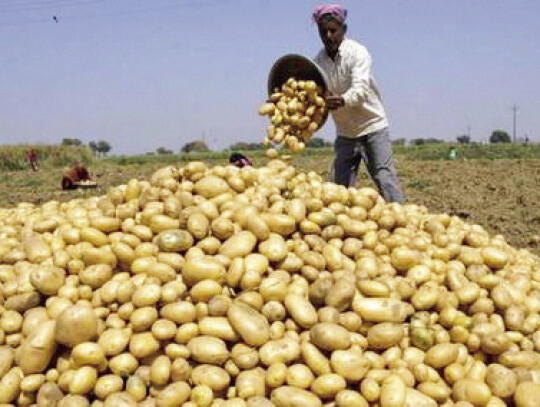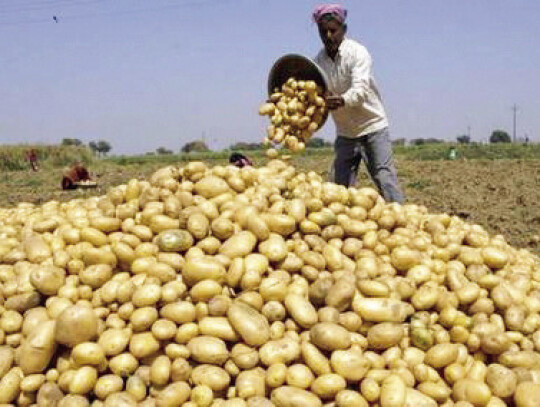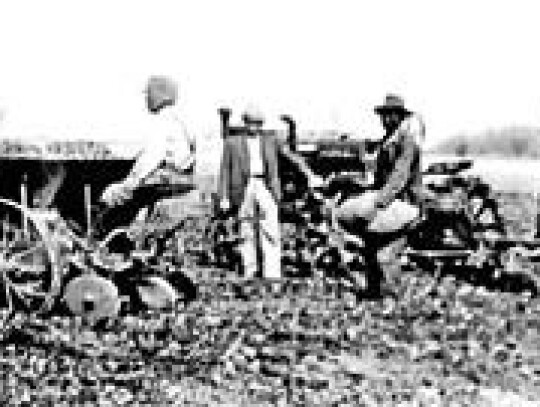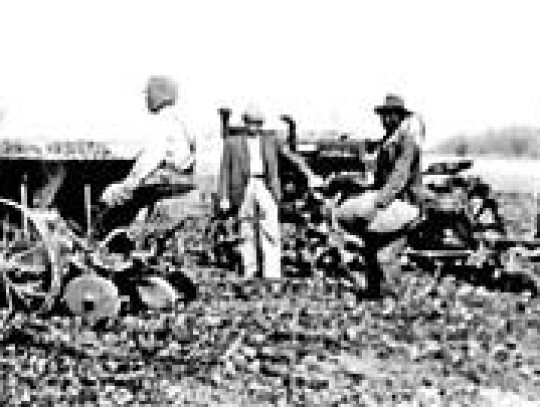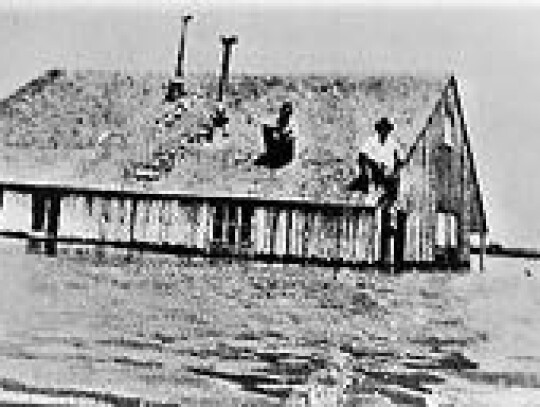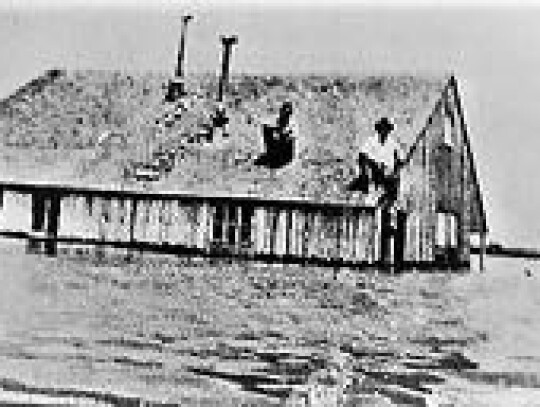Potatoes in Colorado County? We were aware of the great fields of cotton, corn, sugar cane and rice in our fertile Colorado River bottom area, but large fields of potatoes? Who knew?
Several thousands of acres of potatoes were farmed near Calhoun near the river bottom around Eagle Lake. Calhoun Road off, FM 102, was still a gravel road when I often rode my horse along it between the IV Duncan Ranch and the Frazar farmlands. The air was fresh and earthy. The land was rich and fertile. No wonder potatoes grew.
The treeless pastures I passed spoke of once large farming spaces. The old Calhoun Train Station stood along the tracks of the well-known Whangdoodle Train. It was a small train with a car for passengers and mail, a second car for supplies, and another for cargo, usually cattle or corn. It started in Sealy and went to Calhoun, Eldridge, Garwood and back daily.
This area was once prolific with successful potato farms. One local farmer, Dr. Otto Rogers earned the title of “The Potato King,” named by the potato companies. They believed he may have been the largest potato farmer not only in the South, but in the U.S. Eagle Lake was declared “The Outstanding New Potato Section of the South.” The Boyle Company of Wichita, Kansas became the sales agent. The small train depot in Calhoun became the shipping point for well over a thousand train car loads of potatoes shipped all over the U.S.
Several thousands of acres of potatoes were farmed in that area in the early 1900s, only to be dashed by the great storm of 1913 when the river flooded, taking out many crops and farms. Otto Rogers persisted whi le others stopped farming. Other prominent potato farmers were Dr. P.T. Gorden; J.W. Plunkett; Joe Helmer; Ervin and Waldo Terrell; C.C. Evoritt; John Brisbois; W.J. Wright, and John Burns, among others. About 150 people lived in Calhoun, mostly farmers. These growers were said to be among the most talented in the country. They sold under the national brands, “The Wagon Wheel,” “The Triangle Brand,” and the “State of Texas Brand.”
Potato growing was a good local Colorado County business. Weather was always as challenge. The potatoes were planted in February, normally harvested in May for the early market. Farmers had to escape a hard freeze, and the floods of an uncontrolled Colorado River. Eventually, most potato farmers went southward to the Rio Grande Valley for more favorable weather conditions.
With McDonalds selling almost 4 billion pounds of potatoes each year, just imagine what the potential might have been for today’s potato market in Calhoun. Remember the “Potato King of the South” when you next bite into that tasty baked potato or French fry.
.jpg)


